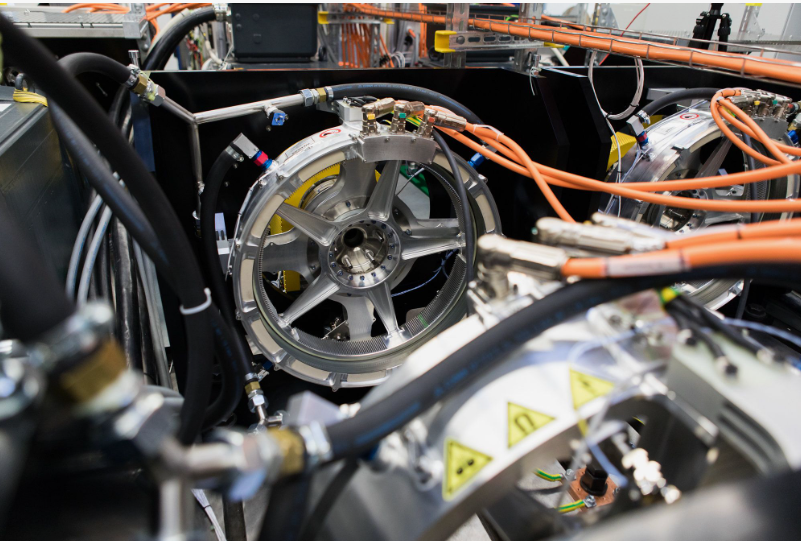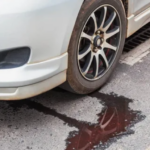Maintaining a scrap car’s electrical system can be a daunting task, especially when the vehicle is nearing the end of its life. However, proper maintenance and troubleshooting can extend the usability of the car and maximize its value. Whether you’re looking to sell or keep the car running for a little longer, understanding how to maintain and troubleshoot the electrical system is crucial. Here are some comprehensive tips to help you through the process.
Understanding the Basics of a Car’s Electrical System
Before diving into troubleshooting, it’s essential to have a basic understanding of how a car’s electrical system works. The primary components include the battery, alternator, starter motor, and the car’s wiring and fuses. Each part plays a vital role in ensuring the vehicle runs smoothly.
Battery: This is the heart of the car’s electrical system. It provides the necessary power to start the engine and run other electrical components.
Alternator: Once the car is running, the alternator takes over from the battery, supplying power and recharging the battery.
Starter Motor: This component uses the battery’s power to turn over the engine and get the car running.
Wiring and Fuses: These are the veins and arteries of the electrical system, carrying power to various parts of the vehicle.
Understanding these basics can help in diagnosing and fixing issues that arise in a scrap car’s electrical system.
Common Electrical Problems in Scrap Cars
Scrap cars often face a myriad of electrical problems due to age, wear, and tear. Here are some common issues:
Dead Battery: A battery that won’t hold a charge is a frequent issue.
Faulty Alternator: If the alternator fails, the battery will not charge, leading to electrical failures.
Bad Starter: A failing starter motor will prevent the car from starting.
Electrical Shorts: Worn-out wires can cause shorts and other electrical issues.
Blown Fuses: A blown fuse can cause individual electrical components to stop working.
Recognizing these problems early can save time and money, especially if you’re planning to sell your car to the Best Cash For Unwanted Cars Melbourne service.
Tools Needed for Electrical Troubleshooting
Having the right tools is essential for troubleshooting a car’s electrical system. Here’s a list of basic tools you might need:
Multimeter: For measuring voltage, current, and resistance.
Test Light: Useful for checking the presence of voltage in different parts of the circuit.
Wire Strippers and Crimpers: For repairing and replacing wires.
Socket Set: For removing and tightening electrical components.
Battery Charger: To recharge a dead or weak battery.
Fuse Puller: To safely remove and replace fuses.
With these tools on hand, you can tackle most electrical issues that arise in a scrap car, ensuring it remains in the best possible condition for sale to Best Cash For Cars Melbourne.
Step-by-Step Guide to Troubleshooting Electrical Issues
Checking the Battery
The first step in troubleshooting electrical problems is to check the battery. Here’s how:
Inspect for Corrosion: Look for white or greenish deposits on the battery terminals, which can hinder performance.
Test the Voltage: Use a multimeter to check the battery voltage. A fully charged battery should read around 12.6 volts or higher.
Load Test: If the voltage is low, perform a load test to determine if the battery can hold a charge.
If the battery fails any of these tests, it may need replacing. Selling your car with a new or functioning battery can increase its value with Best Cash For Cars Melbourne.
Evaluating the Alternator
A faulty alternator can cause the battery to drain quickly. To check the alternator:
Start the Engine: Measure the voltage across the battery terminals with the engine running. It should be between 13.5 and 14.5 volts.
Load Test: Turn on the headlights, radio, and other electrical components. The voltage should remain stable.
Inspect the Belts: Ensure the alternator belt is tight and not slipping.
If the alternator is not functioning correctly, it needs to be repaired or replaced to keep the car running smoothly.
Testing the Starter Motor
A bad starter motor can prevent the car from starting. To troubleshoot:
Check Connections: Ensure all cables connected to the starter are tight and free of corrosion.
Test Voltage: Use a multimeter to check the voltage at the starter when the ignition key is turned. It should read 12 volts or more.
Listen for Sounds: A clicking sound often indicates a faulty starter motor.
If the starter motor is faulty, replacing it is the best course of action to ensure your car starts reliably.
Inspecting Wiring and Fuses
Worn or damaged wiring can cause electrical issues. To check the wiring and fuses:
Visual Inspection: Look for any obvious signs of wear, damage, or corrosion.
Test Fuses: Use a test light or multimeter to check each fuse. Replace any that are blown.
Check Connections: Ensure all electrical connections are tight and secure.
Maintaining the wiring and fuses ensures that all electrical components function properly, making your car more appealing to Best Cash For Cars Melbourne.
Diagnosing Electrical Shorts
Electrical shorts can be challenging to diagnose. Here’s a method to find them:
Disconnect the Battery: To prevent further damage.
Use a Test Light: Connect a test light between the battery terminal and the disconnected cable. If the light turns on, there’s a short.
Isolate the Circuit: Remove fuses one by one until the light goes out, indicating the faulty circuit.
Inspect the Circuit: Once the faulty circuit is identified, inspect the wiring and components for damage.
Fixing electrical shorts can prevent further electrical issues and ensure the car’s electrical system is in good working order.
Preventative Maintenance for Electrical Systems
Regular maintenance can prevent many electrical issues from arising. Here are some preventative measures:
Clean Battery Terminals: Regularly clean the battery terminals to prevent corrosion.
Check Alternator Belt: Ensure the belt is in good condition and properly tensioned.
Inspect Wiring: Regularly check the wiring for signs of wear or damage.
Replace Worn Parts: Replace any worn or damaged electrical components promptly.
Regular Testing: Periodically test the battery, alternator, and starter motor to ensure they are functioning correctly.
By following these preventative measures, you can keep your car’s electrical system in good condition, making it more attractive to buyers like scrap car buyers for cash in Melbourne.
Benefits of a Well-Maintained Electrical System
Maintaining your scrap car’s electrical system offers several benefits:
Reliability: A well-maintained electrical system ensures the car starts and runs reliably.
Safety: Properly functioning lights, signals, and other electrical components are crucial for safety.
Value: A car with a functioning electrical system is more valuable to buyers, including Best Cash For Cars Melbourne.
Longevity: Regular maintenance can extend the life of the car’s electrical components.
Investing time and effort into maintaining the electrical system can pay off, whether you’re keeping the car or selling it.
Selling Your Scrap Car to Best Cash For Cars Melbourne
Once your car’s electrical system is in good working order, you might consider selling it to maximize its value. Best Cash For Cars Melbourne is a reputable service that offers competitive prices for scrap cars.
Advantages of Selling to Best Cash For Cars Melbourne
Competitive Prices: They offer some of the best prices for scrap cars in Melbourne.
Convenience: They handle all the paperwork and towing, making the process hassle-free.
Fast Service: They provide quick quotes and fast payment, ensuring you get cash for your car promptly.
Environmentally Friendly: They ensure that scrap cars are recycled and disposed of in an environmentally responsible manner.
Selling your car to Best Cash For Cars Melbourne can be a simple and profitable way to get rid of an old vehicle.
Preparing Your Car for Sale
Before selling your car, ensure it’s in the best possible condition:
Clean the Car: A clean car is more appealing to buyers.
Fix Minor Issues: Address any minor electrical issues to maximize the car’s value.
Gather Paperwork: Have all necessary paperwork ready, including the car’s title and maintenance records.
By preparing your car properly, you can ensure a smooth and profitable sale to Best Cash For Cars Melbourne.
Conclusion
Maintaining a scrap car’s electrical system may seem like a daunting task, but with the right knowledge and tools, it can be manageable. Regular maintenance and troubleshooting can keep the car running reliably, enhance its safety, and increase its value. If you decide to sell your car, Best Cash For Cars Melbourne offers a convenient and profitable option. By following the tips and guidelines outlined in this article, you can ensure that your car’s electrical system remains in good condition, making it more appealing to buyers and ensuring you get the best price possible.



